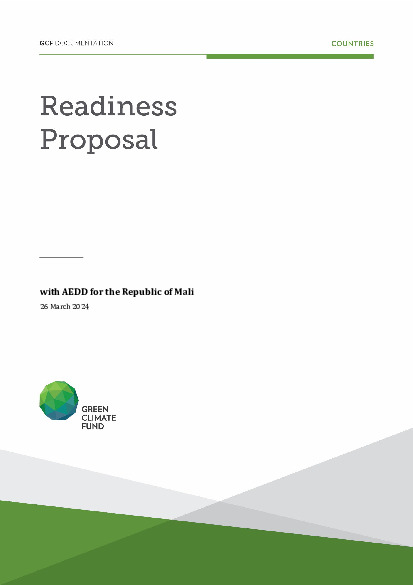Enhancing regulatory framework for energy transition to accelerate the implementation of Mali's NDC

Enhancing regulatory framework for energy transition to accelerate the implementation of Mali's NDC
Mali is a vast Sahelian country with a dry tropical climate. The country’s economy is based on resources derived mainly from agriculture, livestock, natural forestry, and fishing, making the country and its economy extremely vulnerable to climate variability and potential changes.
Party to the UNFCCC, Mali, has made significant decisions to support the global efforts to address climate change and meet its obligations under the Convention and the Paris Agreement. Through its revised NDCs, the country has committed to increasing its ambitions to achieve a 40% reduction in total emissions. This includes updating the baseline period with GHG emission reduction levels from the reference scenario of 31% for energy, 25% for agriculture, 39% for forests, and 31% for waste by the end of 2030 (Mali First NDC, Updated submission 2021; 2).
The country relies heavily on fossil fuels and biomass to meet its energy needs. Although the recent increase in the access rate is remarkable, from 17% in 2005 to 48% in 2018, for both urban at 93% and rural at 25% respectively, the vast majority of rural populations still does not have access to electricity and still uses kerosene, solar lamps or torches, or batteries, which are costly and unreliable. However, the country has enormous potential for renewable energy, which, if properly employed, can significantly reduce the country’s GHG emissions from the energy sector. The latest resource to be discovered is a natural hydrogen deposit in Bourakébougou, in the circle of Kati. A pilot unit has been installed that transforms natural hydrogen into clean electricity for the 1500 inhabitants of the village. Considering that this is without CO2 emissions because only water is released, the discovered natural hydrogen deposit is a real asset the country can exploit if feasibility studies into exploiting this natural hydrogen resource as an energy source are conclusive.